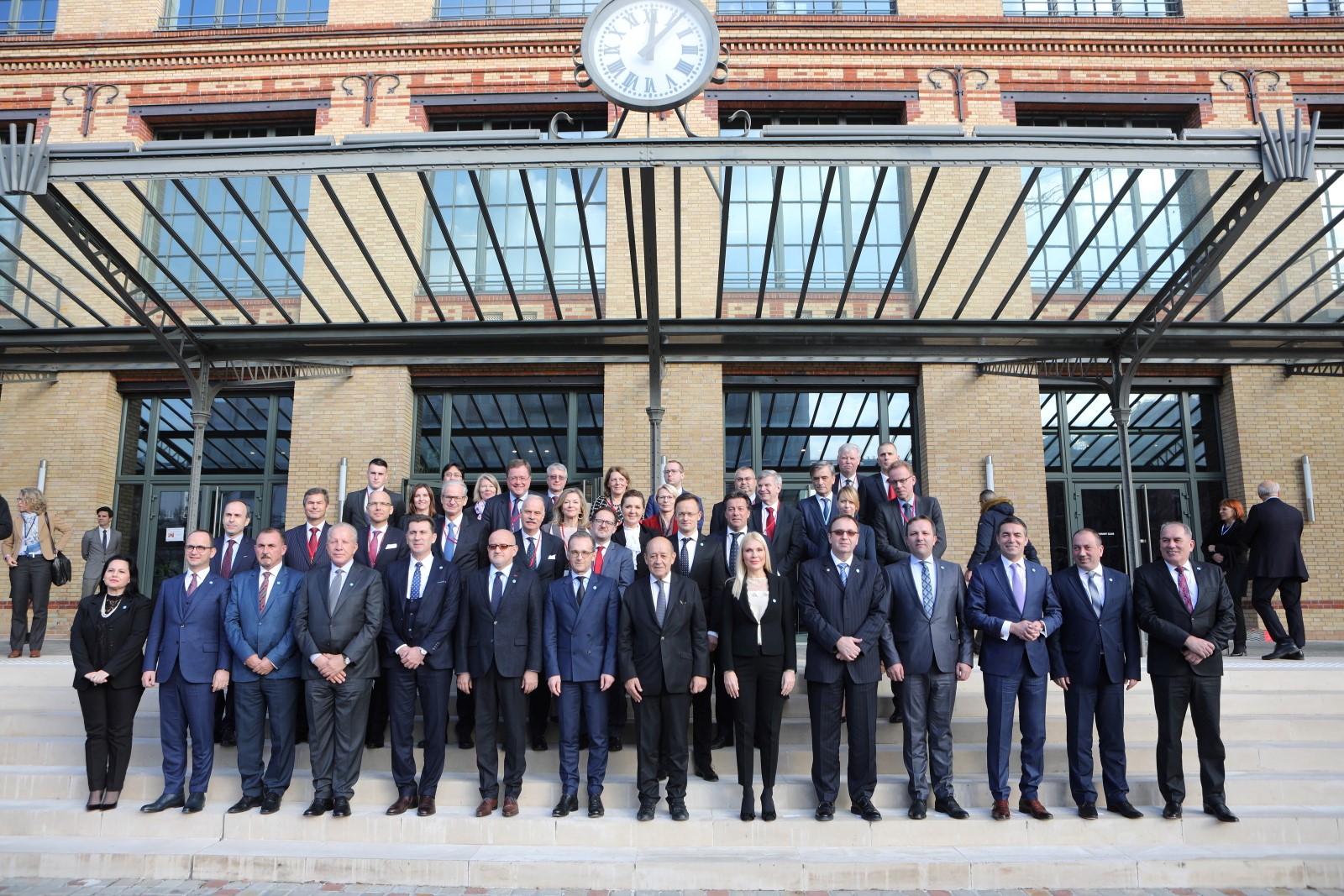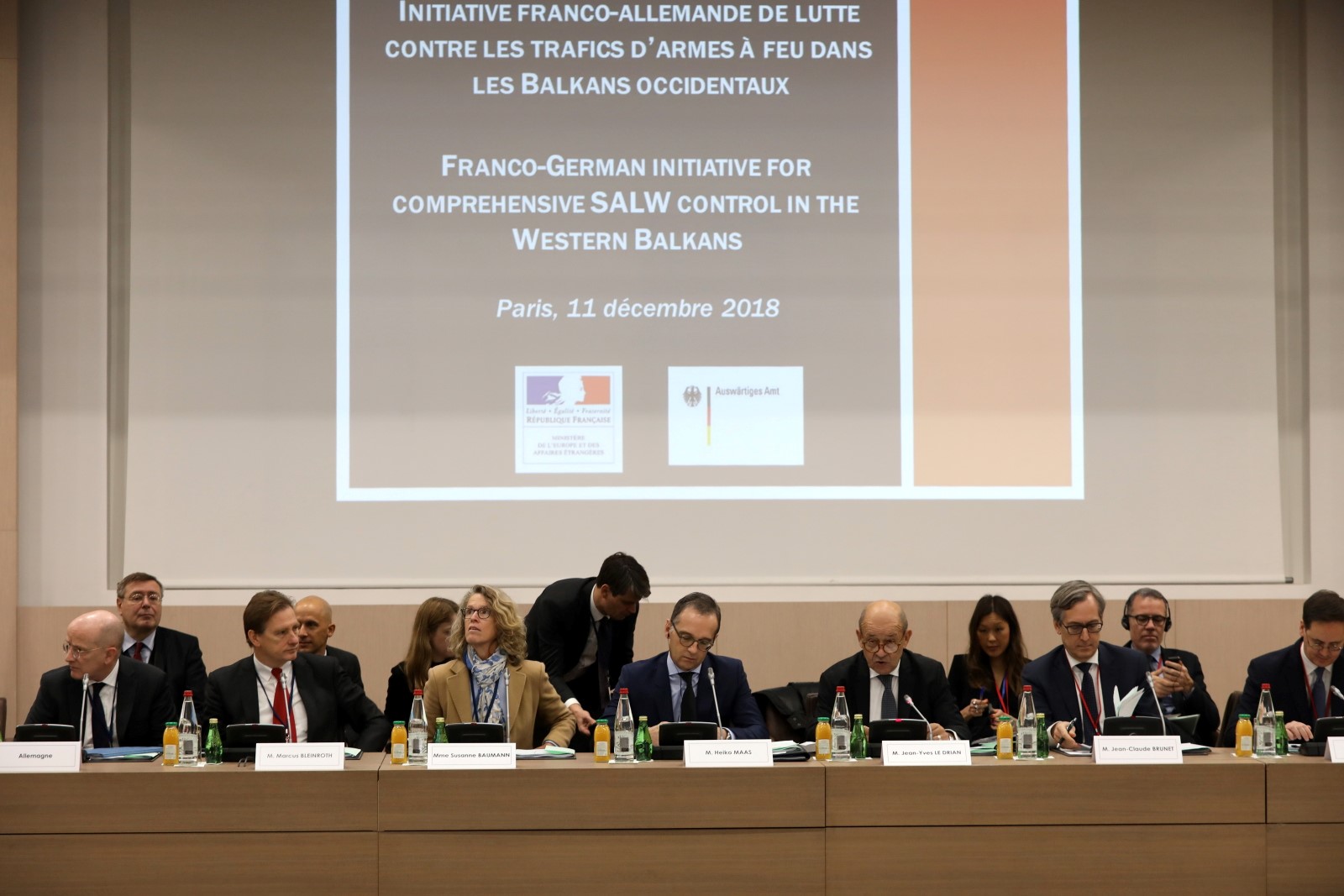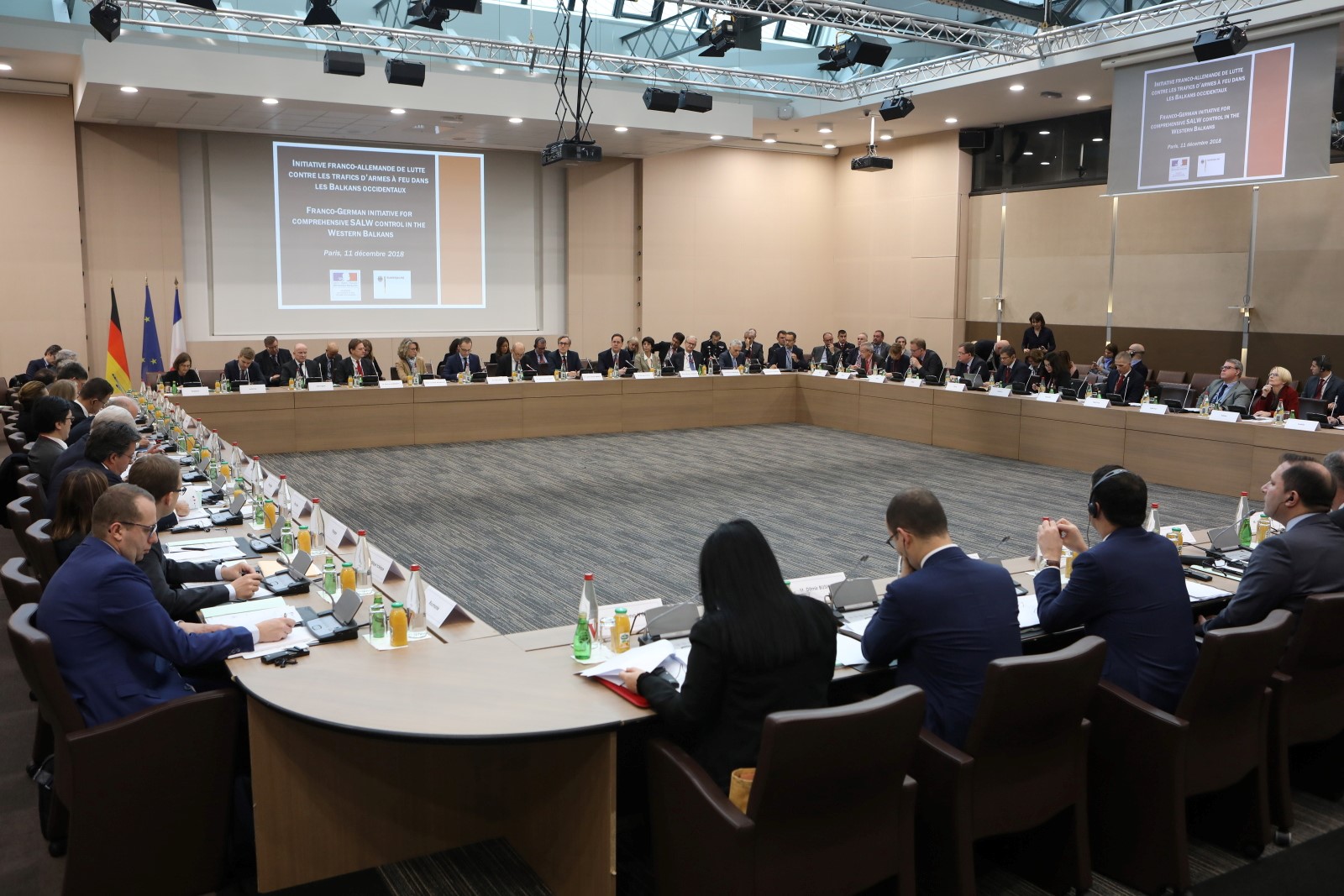



| Tuesday, 11 December 2018. | |
| High-Level Meeting on the Franco-German Initiative on Small Arms and Light Weapons in the Western Balkans | |
| + larger fontnormal font- Smaller font |
 Ambassador Branimir Filipovic, Acting Assistant Foreign Minister for Security Policy, took part in the High-Level Meeting on the Franco-German Initiative to control illicit small arms and light weapons (SALW), which was held in Paris. Ambassador Branimir Filipovic, Acting Assistant Foreign Minister for Security Policy, took part in the High-Level Meeting on the Franco-German Initiative to control illicit small arms and light weapons (SALW), which was held in Paris.Ambassador Filipovic was a member of the delegation of the Republic of Serbia led by the State Secretary of the Ministry of Interior, Mrs Biljana Popovic Ivkovic. The meeting in this format, co-chaired by French Foreign Minister Jean-Yves Le Drian and German Foreign Minister Heiko Maas, was also attended by the Foreign and Interior Ministers from the Western Balkans region, senior representatives of Ministries of Foreign and Internal Affairs, officials of international organizations and countries supporting this initiative and the Roadmap for a sustainable solution to the illegal possession, misuse and trafficking of SALW and their ammunition, adopted at the London Brussels Process Summit in July 2018. In her capacity as Head of the delegation, State Secretary of the Ministry of Interior Popovic Ivkovic, based on the common agreement, presented measures and activities undertaken by Serbia in the fight against illegal transfers of this type of weapons, indicating that plans had been made to meet the Roadmap goals in Serbia by 2024 in order to promote the country's capacities, safety of our citizens and, consequently, indirectly contribute to greater security of the region and Europe as a whole. Over a working lunch hosted by the French Foreign Minister, State Secretary Popovic Ivkovic with Ambassador Filipovic engaged in discussion on broader security concerns and challenges faced in the region (e.g. terrorism, organized crime, radicalization, etc.) in addition to illicit SALW. Ambassador Filipovic, speaking about Serbia's commitment to peace and security in the region, pointed out that security challenges were indivisible, that the region and beyond were unable to tackle them alone, and that cooperation was an imperative for the benefit of all. He emphasized that the cooperation was based on confidence building and on commitment to common goals which were in the interest of stability, and therefore it could be carried out by honouring mutual agreements and understandings and by implementing the assumed obligations. Confidence and trust could not be built by refusing to comply with the obligations undertaken or through unilateral actions in breach of the agreements in force, which was exactly what Pristina was doing with the imposition of discriminatory tariffs and through violation of CEFTA Agreement and the Stabilisation and Association Agreement (SAA), inflicting harm to other parties involved. Responding like State Secretary Popovic Ivkovic to certain qualifications made by representatives of Pristina Institutions of Self-Government (PISG), Ambassador Filipovic said that Belgrade did not put any obstacles to Pristina in regional cooperation, whether on security matters or otherwise, since Pristina institutions were represented in regional organizations and initiatives, but it being understood that this representation should be asymmetric because Serbia did not recognize the unilateral declaration of independence of Kosovo, which was a legitimate position defended by it in the international arena. The next edition of this high-level forum is planned to take place in Berlin in 2019.  
|